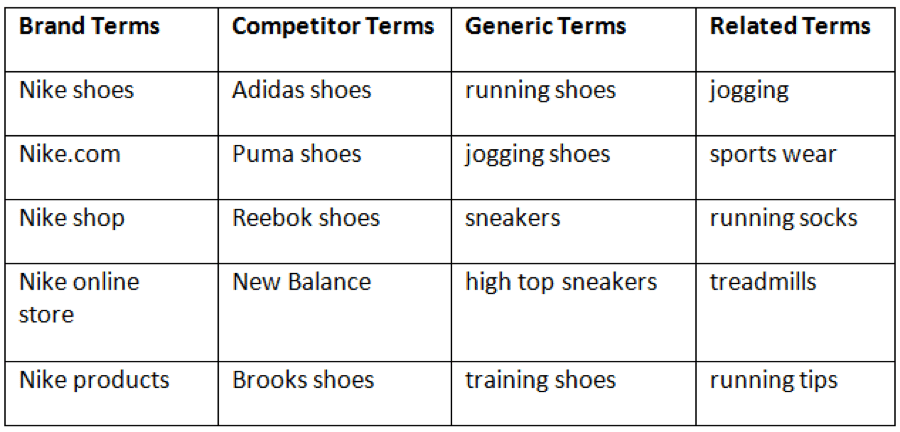Did you know businesses make on average $3 in revenue for every $1.60 they spend on AdWords?
If you’ve been involved in the “PPC game” for many years, it’s safe to assume that you have a system in place for generating positive results. This doesn’t mean that every campaign works in your favor, but you at least have a strategy for putting yourself on the right path to success.
Conversely, there are people who are just now getting their feet wet. Despite the fact that PPC advertising has been a popular method of generating traffic for many years, they’re just now realizing that it could benefit their company. Does this sound familiar?
If you’re new to PPC advertising and ready to make the most of this strategy in the near future, it’s time to address these five questions:
1) What is Your Budget?
In short, this is the one question that will drive everything you do with your PPC campaigns. This doesn’t mean you need to spend thousands of dollars every day to generate results. However, you must know how much you’re willing to spend to acquire a new lead and/or sale.
As a general rule of thumb, start out small in regards to your budget. It’s one thing to lose $20 per day as you get up and running. It’s another thing entirely to blow through $200 per day.
Once you become comfortable with your budget and what you’re getting in return, you can begin to spend more money.
2) How Many Keywords Will You Focus On?
In addition to budget related questions, this is one that comes up time after time. Even if you have a lot of money to spend, you can’t generate high-level results until you select the right keywords.
With this in mind, many advertisers make the mistake of adding too many keywords to an ad group. Rather than focus on those that have the best chance of generating positive results, they subscribe to the “more is better” line of thinking
Early on, there is no way of knowing which keywords will drive the most traffic and conversions. Sure, you can take cues from your competition, but this is no guarantee of success.
Just the same as your budget, start out small. Focus on 5-10 keywords per ad group, closely tracking the data associated with each one. From there, as you gain more knowledge, you can add more keywords.
More specifically, here’s an example provided by WordStream on finding the right keywords for your PPC campaign:

3) How Will You Track Your Results?
In a perfect world, you’d never have to answer this question. Instead, every dollar spent would result in a positive return on investment (ROI). Unfortunately, you know that this isn’t the way the industry works.
You need to track every piece of data associated with your PPC campaigns. From your budget to your keywords and conversion rate, the more data you collect the easier it is to adjust your campaigns for more success.
For example, you can use Google Analytics by setting up conversion tracking. As noted by Google, this allows you to “see how effectively your ad clicks lead to valuable customer activity, such as website purchases, phone calls, app downloads, newsletter sign-ups, and more.”
4) Why Aren’t my Ads at the Top?
With any PPC campaign, it’s your hope that your ad will be displayed at the top of the search results page. After all, this is the best way to improve your click through rate.
Unfortunately, there’s something you need to know: your competitors have the same idea as you. For this reason, you may find it a challenge to push your ad to the top of the page. This is particularly true in regards to an ultra-competitive keyword.
Generally speaking, there are two reasons why an ad doesn’t reach the top:
- Max cost per click (CPC)
- Quality score
First off, your keyword bid may be too low. In this case, the easy fix is to increase your bid until your ad reaches the top of the search results. The issue with this is the fact that you’re spending more money.
Secondly, your quality score may have taken a hit for one reason or another. If your quality score is low, maybe due to a low click through rate as well as conversion rate, it’s time to review your ad copy and make some changes.
Note: check out this guide if you want to learn more about the Google AdWords quality score.
5) What are the Top Reasons for a Low Click Through Rate?
Just because you spend money on ads doesn’t mean that people will actually convert. While you only get charged for clicks, your primary goal is to push as many people as possible to your website with hopes that they will take action to becoming a lead or a sale.
There are many reasons for a low click through rate, starting with poor ad copy. Is the headline weak? Does the ad lack a call to action (CTA)? Does it include spelling errors?
It goes without saying that you should A/B test each ad, as this will help you settle on the copy that generates the best results.
Another potential reason for a low click through rate is keyword selection. For instance, you may be bidding on keywords that don’t get much search volume. Subsequently, your ad will not receive many impressions or clicks. However, this isn’t all that bad especially if these low search volume keywords are long-tail search terms – meaning they are targeted to having a higher conversion rate, searched by those who are ready to ‘buy’.
Final Thoughts
Even if you have addressed these common PPC questions in the past, it’s a good idea to revisit them. You may find that a simple tweak, such as more closely tracking your data, can take your campaign to the next level.







One Response
Very nicely written and well explained all the concepts in the blog. I agree with you that Quality score is a very important factor to consider when you are running Google Ads. Quality score plays important role to measure your ad CPC. Using your Quality Score as a guiding tool, you can improve your ads, keywords and landing pages over time.